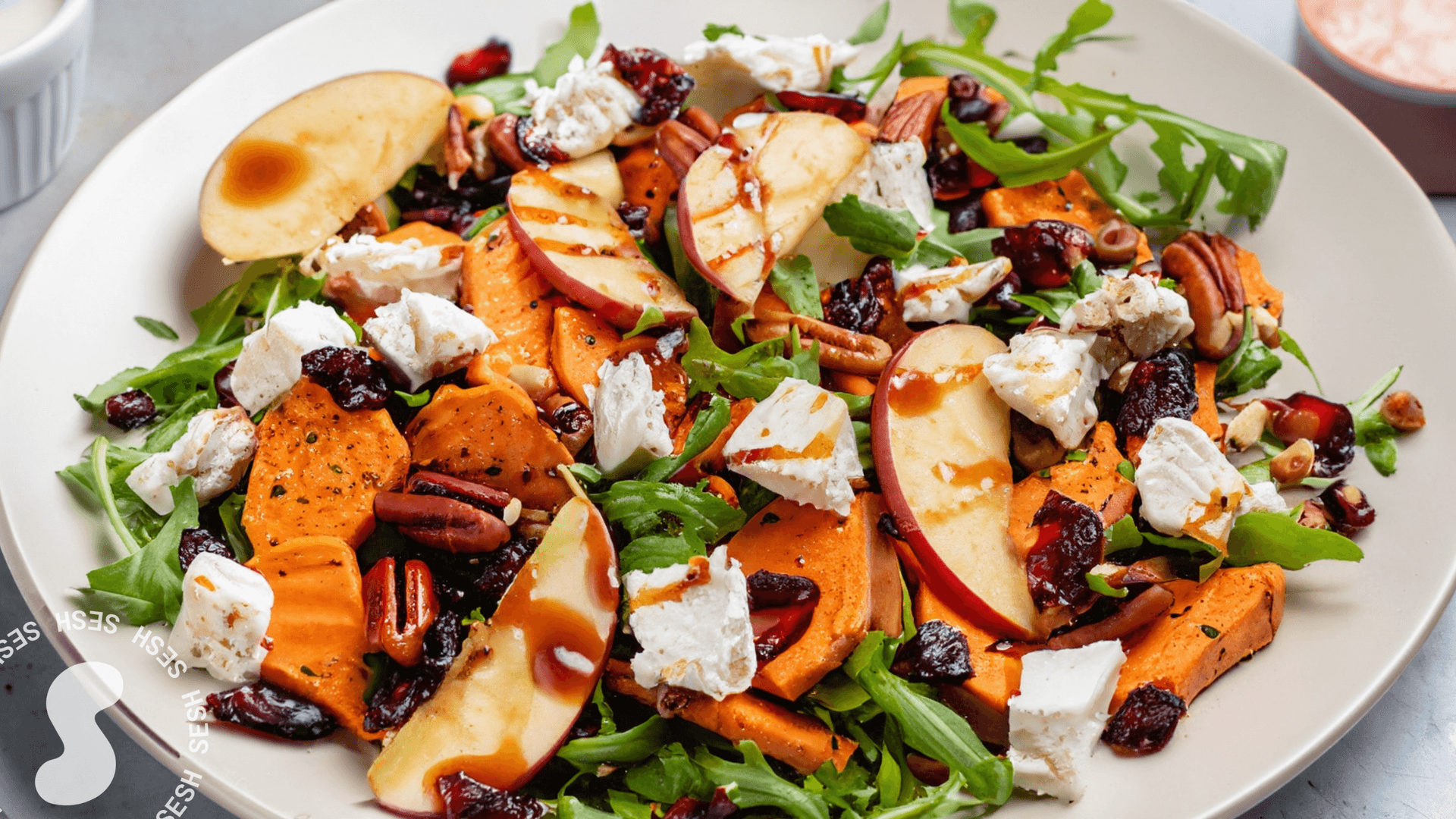
Coach Shae’s Guide To Macro-friendly Nutrition
Pop quiz! Which of the following promotes weight loss in a healthy and sustainable way:
- A 1200 calorie diet
- Juice cleanses
- Restricting “unhealthy” foods
- The keto diet
- None of the above
If you answered none of the above, you’re right! Not a single one of those choices is a sustainable way to keep your body healthy, nor do they make you feel good at the end of the day. We’d have to agree with people who say “losing weight has a lot to do with how you eat.” But, we’ll be the first ones to tell you that eating with your goals in mind is not a synonym for bland food, or feeling starved by the end of the night.
A foolproof system for goal-centric nutrition is counting macros and meal prepping. Counting macros is similar to counting calories, but by focusing on your macronutrients (protein, carbs, and fat) you’re making sure that with each calorie you’re getting the right proportions of what your body needs to perform optimally. This way you know exactly what nutrients you’re consuming within your overall caloric intake.
ACCORDING TO SCIENCE
According to this study, those who tracked their food consistently saw significant long-term fat loss, compared to those that tracked rarely or didn't track at all.This shows us that simply tracking your food and paying more attention to what you're eating can help you to make better decisions.
Typically, a sustainable diet is going to ask you to eat 1.5 grams of carbs per your body weight, 1 gram of protein, and about 0.4 grams of fat. This is where we tell you that a low-carb diet isn’t something you should even consider. While most junk food is high in carbs, that doesn’t mean you don’t need them. Assuring that you’re getting an adequate amount of macronutrients means that you’re more likely to have the energy to perform well in your workouts and additionally, making sure that you’re able to recover. Not tracking your macros oftentimes can lead to little to no progress.
HIT THE GROCERY STORE
When you go to the grocery store, make sure you’re shopping for recipes, not for items. If not, you’ll be left with grapes, spinach, and a container of protein powder…good luck with that. Our best tip is to browse the internet and find some macro-friendly meals that sound good to you! Pick a breakfast meal for that week, 2 lunch meals, 4-5 dinner meals (we like to get ingredients that work for 2 or 3 dinners that week). Here are some of Coach Shae’s favorite grocery items:
PROTEIN:
- Chicken
- Turkey
- Eggs
- Egg whites
- Protein powder
- Jerky
- Non-fat cottage cheese
- Turkey bacon
- Tilapia
- Greek yogurt
CARBS:
- Pasta
- Rice
- Potatoes
- Bread
- Vegetables
- Fruits
- Oats
- Sauces
- Lentils
- Honey
- Tortillas
- Rice cakes
FATS:
- Avocados
- Peanut butter
- Oils (Olive, Avocado, Coconut, etc.)
- Dark chocolate
- Chia seeds
- Flax seeds
- Salad dressing
- Almonds
- Walnuts
- Eggs
- Olives
TIP: Remember these guidelines when shopping -
- Water: 1 gallon every day (128 oz.)
- Fruits: 1-2 servings daily
- Veggies: 2-4 servings daily
- Post-workout: Protein & carb source within 30-60 min pre + post workout will help with your workout fuel and then for your body to recover!
MEAL PREPPING FOR YOUR MACROS 101
Meal prepping can be really time consuming and honestly annoying when you first start doing it. If you’re someone who is already a busy person, this may seem like an extra thing that you don’t have time for. BUT, meal planning is not only more cost effective but is going to save you time during the week. Here are some tips Coach Shae lives by:
HAVE A SYSTEM
Using a scale to measure your food is a great way to be consistent and also learn how much a portion actually is. Typically sticking to grams or ounces is the best way to do this.
TIP: When measuring, always weigh food dry or always weigh food cooked - don’t switch back and forth!
DOUBLE CHECK
When scanning barcodes into tracking apps like MacrosFirst, make sure you’re correctly inputting your serving size.
KNOW WHAT NOT TO TRACK
Things like: black coffee, pickles, mustard, seasonings, jalapenos, some hot sauces, and small amounts of lettuce, stevia, onions, mushrooms, and tomatoes are not necessarily foods you need to be tracking. Skip tracking those if it eases your mind a bit!
TRACK EVERYTHING THE DAY BEFORE
If you track everything you’ll be eating the day before you eat it, you won’t feel like you’re doing math every time you eat. This kills the stress of if something will fit your macros and also allows you to fit your favorite foods into your day. Remember, you want to hit all your macros within 3-5g of your daily goal.
Changing up your diet can be hard, but our goal here is to do everything in moderation. We live by the 80/20 rule at Sesh - meaning 20% of your diet can be fun things you love, like cheeseburgers, cookies, donuts, margaritas, etc. That means these foods are still in your house, you just eat them mindfully. Macros, meal prepping, and all of the things nutrition don’t need to be a hurdle. So, if you want a burger, eat a burger, just track it.